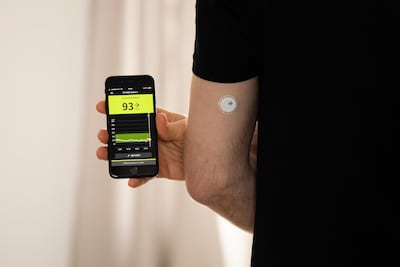Financing

Venture capital investment in healthtech is showing signs of early recovery in the first half of 2024 after the long hangover of a downturn that followed booming investments during the pandemic years, according to a new report from Silicon Valley Bank (SVB). Despite ongoing challenges, healthtech is on a positive trajectory and hovers between $3.5bn and $4.5bn per quarter, surpassing pre-pandemic levels.

Marabio Systems says the new funding will help accelerate efforts to bring a blood test to market in 2025 that will accurately determine if a mother is a carrier of antibodies that cause MARA, a subtype of autism that believe to cause more severe behavior.

This week, Establishment Labs Holdings announced the FDA gave it premarket approval for Motiva breast implant, Cologuard lands FDA approval for Cologuard Plus and GE HealthCare gets FDA nod for a new imaging agent. The FDA announces another expansion for TAP into ophthalmology and radiology. The AAMI and CTA will join forces to develop standards for AI and ML-enabled health care products.

An additional $50m brings the neurovascular intervention specialist’s total Series F funding to $82m. Route 92 says it will use the capital to build its sales and support teams and pursue regulatory authorizations around the globe for its FreeClimb portfolio while advancing its SUMMIT MAX clinical trial for the investigational Monopoint Reperfusion System.
Deals

Beta Bionics’ automated insulin delivery system is now pairable with Abbott’s FreeStyle Libre 3 Plus CGM.

Abbott’s Diabetes Care Division has recorded meteoric growth over recent years. Partnerships and a laser-focused strategy for driving patient access are at the core of its success, says Chris Scoggins, SVP of commercial operations and marketing.

This week, Hologic announced it would pay $350m for uterine fibroid treatment firm Gynesonics; the US FDA authorized a Novocure cancer treatment and a surgical robot from CMR Surgical; and the IMDRF announced 15 new members.

An interactive look at medtech and diagnostics deals made during August 2024. Data courtesy of Biomedtracker.
R&D

This week, HistoSonics announced it will bring its ultrasound system for destroying liver tumors into VA hospitals, Edwards Lifesciences reports encouraging TRISCEND II trial results at TCT, study finds blood test for CRC screening are less cost-effective than alternatives, and more.

Medtech Insight talked with GE HealthCare’s chief AI officer Parminder “Parry” Bhatia at HLTH about the firm’s new CareIntellect for Oncology offering to help clinicians make efficient use of multimodal patient data, his vision for projects within AI Innovation Lab, and the future of AI in health care.

House Republicans say the FDA has not done enough to support its laboratory safety office, despite past recommendations.

Oxford Medical Products (OMP) announced positive results from its first randomized controlled trial of weight loss device Sirona, an inert dual-polymer hydrogel pill that expands in the stomach to mechanically suppress appetite. CEO Camilla Easter views the device as complementary and potentially synergistic with GLP-1 receptor agonists “at a fraction of the cost.”
Strategy

At HLTH 2024, GE HealthCare unveiled CareIntellect for Oncology, a generative AI-driven platform to help oncologists quickly assess patient data across multiple sources to save time and improve treatment planning. The platform, currently in evaluation at two US hospitals, is set for launch in the second half of 2025.

Despite questions surrounding the SEC rule, including disputes being litigated in the US Eighth Circuit, companies must prepare to meet the new climate disclosure requirements in addition to related mandates in California and abroad. Experts emphasize opportunities beyond compliance.

Craig Eagle, chief medical officer of Guardant Health, provides his view on an increasingly competitive liquid biopsy market in this interview with Medtech Insight.

‘Unicorn’ Startup Owkin On EU’s AI Act, Funding Needs: ‘Europe Doesn’t Want To Be Under-Competitive’
The EU Artificial Intelligence Act, the first official AI regulation globally, entered into force on 1 August 2024. Two months on, Medtech Insight sits down with AI diagnostic startup Owkin’s chief diagnostic officer Meriem Sefta, and senior vice president of public affairs and impact Yedidia Levy-Zauberman, to discuss how the company is adapting to the EU AI Act, the opportunity it presents, and what is needed next for AI deployment in the EU.
Startups & SMEs

University of Cambridge's soon-to-be spun-out Nimble Genomics is among grant-winning projects in Capital Enterprise's Cancer Tech Accelerator. Medtech Insight spoke to clinical oncologist and Nimble founder Henno Martin and co-founder Radek Lach to learn more what about the brain cancer blood test’s prospects in an increasingly competitive liquid biopsy space.

Medtech Insight was on the ground at HLTH looking for innovative companies. Learn about seven start-ups using AI to help physicians detect conditions including prostate and breast cancers, seizures and heart failure; assess patients for cognitive decline validate and deploy algorithms, and monitor patients in and out of the hospital.

Start-ups pitched a diverse deck of innovative technologies to three judges and an audience of potential investors, strategics and physicians at the Octane Medical Innovation Forum in Irvine, CA. Highlights include neuromodulation company Sinaptica Therapeutics, which won the competition for both “People’s Choice” and “Judge’s Choice.”

Speakers focused on whose role it is in the EU to support manufacturers who struggle to interpret the medtech regulations.
Investor Eye

Sofinnova Partners has played an important role in defining the medtech investment space for the past 50 years, helping bring to market a plethora of life-saving technologies, even when they appear, initially, to be risky.

Each year, Medtech Innovator whittles down a vast number of applicants to a relatively succinct shortlist of companies. Paul Grand, Medtech Innovator’s CEO, spoke to Medtech Insight about this process, as well as some of the broader trends impacting investment in medtech.

When a large medtech company sets up a venture fund, it typically invests in technologies that are adjacent to its pre-existing portfolio. Intuitive Surgical’s approach is different.

Keeping a firm grip on one’s IP is a cornerstone of most innovative businesses. However, Robert Cote, CEO of Cote Capital, believes that if the idea is good enough to keep close, it’s good enough to license out.